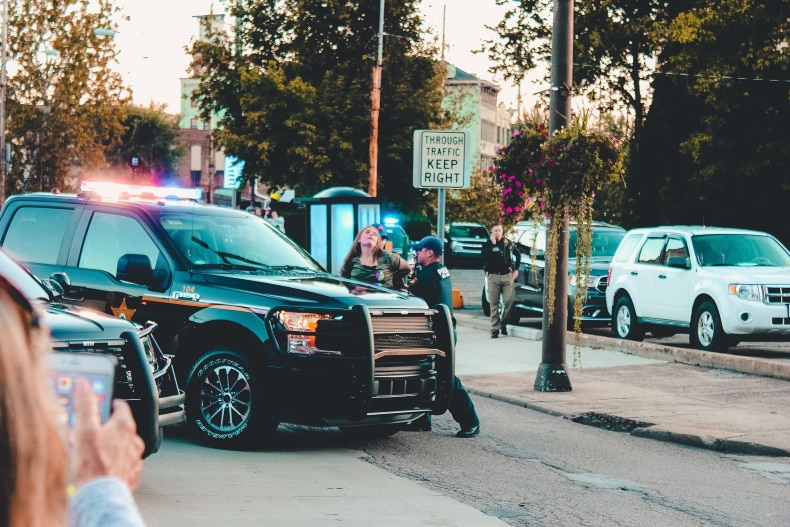- DUI
- Criminal Defense
- Florida DUI
- Traffic Offenses
- Drug Charges
- Marijuana Charges
- Violent Crimes
- Domestic Violence
- Temporary Injunctions
- Weapons Charges
- Theft Crimes
- White Collar Crime
- Juvenile Offenses
- Sex Crimes
- Violation of Probation
- Early Termination of Probation
- Seal or Expunge Criminal Record
- Criminal Appeals
- US Federal Offenses
- Misdemeanor Charges
- Felony Charges
- Co-Defendant Cases
- College Student Defense
- College Student Hearings
- FSU Students
- FAMU Students
- Florida Panhandle Arrests
- Extradition to Florida
- Bench Warrants / Warrants
- Emergency Bond Hearings
- Gambling Charges
- Drone Arrests
- Marsy’s Law
- UAS Infractions
- Introduction of Contraband
- Lying to Police
- Locations
- Case Results
- Our Firm
- Media
- Resources
- Blog
- Contact Us
What Happens After I Get Arrested in Florida?
June 4, 2024 Don Pumphrey, Jr. Criminal Defense Social Share
Being arrested can be a stressful and confusing experience. Here’s a breakdown of what typically happens after an arrest in Florida, focusing on the legal process:
Booking
After the arrest, the police will take you to a station for booking. This involves creating a record of your arrest with details like your name, fingerprints, and photographs. Your belongings will be inventoried and secured. You’ll likely be given a chance to make a phone call, but it’s important to remember that calls from jail are always monitored and recorded. Having a right to a phone call is a myth based upon movies and television, so don’t demand a phone call just ask politely and remember they want to hear everything you are saying.
Bond Hearing (First Appearance)
Most likely within 24 hours, you’ll have a bond hearing before a judge. This is your first official court appearance. The judge will inform you of the charges against you and advise you of your rights, including the right to an attorney. If you can’t afford one, the court will appoint a public defender.
During the bond hearing, the judge will decide on releasing you before your trial. This decision is based on factors like the severity of the charges, your flight risk, and your ties to the community. The judge might set a bond amount you or someone on your behalf can pay to secure your release. If a bond isn’t set, you’ll remain in jail until your trial.
Arraignment
Within a reasonable timeframe after the arrest (usually a few days), you’ll have an arraignment. This is a more formal hearing where the charges against you are officially presented. The judge will again inform you of your rights and ask you to enter a plea: guilty, not guilty, or no contest (nolo contendere). The judge will also inquire as to whether you have an attorney, are planning on getting an attorney or if you cannot afford an attorney they will have you swear out a financial affidavit and if you qualify, they can appoint an attorney for you.
Pleading guilty means you accept responsibility for the charges. Not guilty means you contest the charges, and the case will proceed to trial. No contest signifies you’re not contesting the charges but doesn’t admit guilt. While this plea can be used in sentencing, it isn’t an admission of guilt for future civil cases.
Pre-Trial
This stage involves both the prosecution and defense gathering evidence, interviewing witnesses, and potentially negotiating a plea bargain. A plea bargain is an agreement where you plead guilty or no contest in exchange for reduced charges or a lighter sentence. Your lawyer will advise you on the pros and cons of any plea bargain offers.
Trial
If you plead not guilty and no plea bargain is reached, your case will go to trial. At trial, the prosecution will present evidence to prove your guilt beyond a reasonable doubt. You and your defense attorney will have the opportunity to present your case and challenge the prosecution’s evidence. A jury will decide your guilt or innocence, or in rare circumstances with both sides stipulating a judge might allow a bench trial in a criminal proceeding.
If you’re found guilty or plead guilty, you will be sentenced or have a sentencing hearing. The judge will consider factors like the severity of the crime, your criminal history, and any mitigating factors before determining your sentence. The sentence could involve jail time, probation, fines, community service, or restitution to the victim.
Important Considerations
- Right to Remain Silent: It’s crucial to understand your Miranda rights. You have the right to remain silent and the right to an attorney. Don’t answer any questions beyond basic identification until you have a lawyer present.
- Hiring an Attorney: An experienced Tallahassee criminal defense attorney at Pumphrey Law can benefit your case. They can navigate the legal process, represent you in court, negotiate plea bargains, and fight for the best possible outcome.
Experienced Criminal Defense Lawyer in Tallahassee, Florida
Being arrested in Florida can be extremely stressful. Being charged and “formally charged” by information in Tallahassee or Leon County, Wakulla County, Jefferson County, Gadsden County , Quincy, Crawfordville, Florida State University, Tallahassee Community College, or Florida A&M University can be life changing. Given the possibility of a lengthy jail or prison sentence and hefty financial penalties, it is important to contact an aggressive, trusted and experienced Tallahassee criminal defense attorney as soon as possible.
Don Pumphrey, Jr. and the attorneys at Pumphrey Law have decades of experience fighting on behalf of clients and winning. Call Pumphrey Law now at (850) 681-7777 to learn more about what we can do for you. Our lawyers will be happy to provide you with a free consultation.











